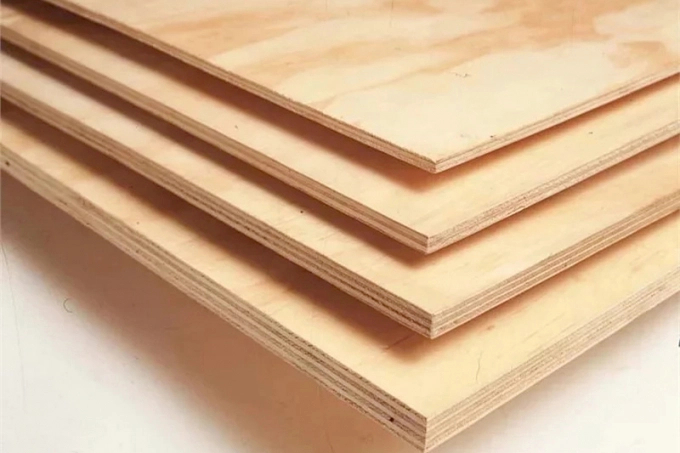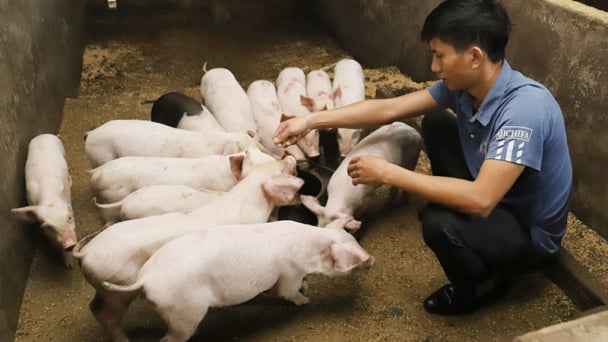June 19, 2025 | 18:09 GMT +7
June 19, 2025 | 18:09 GMT +7
Hotline: 0913.378.918
June 19, 2025 | 18:09 GMT +7
Hotline: 0913.378.918

If Vietnamese plywood imported into the US has a core using peeled boards imported from China, it will be subject to anti-dumping and anti-subsidy taxes.
According to the Trade Remedies Authority (Ministry of Industry and Trade), on July 25, 2022, the US Department of Commerce (DOC) announced the preliminary conclusion of the investigation of evasion of trade remedies for plywood using hardwood materials imported from Vietnam.
Plywood using hardwood materials is made from layers of peeled wood and glued together, later covered with one or two layers of hardwood boards on the surface. The US is applying anti-dumping tax (CBPG) and anti-subsidy tax (CTC) to this Chinese product, with an anti-dumping tax rate of 183.36% and CTC tax from 22.98% to 194.90%.
According to the US Customs Agency, the export turnover of plywood using Vietnam's hardwood materials to this country has continuously increased. The turnover increased from $112.3 million in 2018 to $226.4 million in 2019, $248.5 million in 2020, and $356.7 million in 2021.
Before the investigation started (2019), the export turnover of plywood using Vietnam's hardwood materials to the US in 2021 increased by 57.6%.
The preliminary conclusion of the DOC is that plywood from Vietnam using peeled wood core imported from China will be subject to the same anti-dumping and anti-subsidy tax.
Plywood from Vietnam with raw material core, peeled board manufactured in Vietnam or other countries, is not subject to anti-dumping and anti-dumping duties.
Based on this preliminary conclusion, the DOC will recommend the US Customs and Border Protection (CBP) stop the liquidity and request the importer to pay a deposit equal to the temporarily calculated anti-evasion tax rate. The tax will be applied for shipments imported from Vietnam to the US from June 17, 2020 (the starting date of the investigation).
The DOC allows Vietnamese exporters as well as US importers participating in the self-certification mechanism to be excluded from the circumvention measure. This self-certification mechanism will not apply to businesses that the DOC assesses as failing to provide information or providing incomplete or inaccurate information as requested during the investigation.
The number of businesses participating in self-certification accounted for about 80% of Vietnam's export turnover during the investigation period.
Related parties have the right to submit written comments on the DOC's preliminary findings (date to be announced later). A written request to hold a hearing must be filed with the DOC within 30 days of the notice of the preliminary finding. The DOC also plans to conduct due diligence to verify the information before issuing a conclusion.
According to the latest announcement, the DOC has extended the time to issue a conclusion in this case to October 17, 2022.
Translated by Hoang Duy

(VAN) Biodiversity is being threatened by traditional remedies made from wildlife. Traditional medicine and humans must change to live in harmony with nature.

(VAN) Agrifood investment and finance solutions for people and the planet.

(VAN) Microplastic contamination has become pervasive in seafood, posing unprecedented challenges for food safety and marine ecosystems.

(VAN) Proactively using vaccines, combined with transport control and enhanced surveillance, is the only viable path toward biosecure and sustainable livestock production in Vietnam.

(VAN) Located in the southeast of Ho Chi Minh City, the Can Gio Mangrove Biosphere Reserve is considered the ‘green lung,’ a solid shield protecting the city.

(VAN) To address plastic pollution, closing the plastic recycling cycle will bring significant economic and environmental benefits.

(VAN) According to the Binh Thuan Department of Industry and Trade, in the first five months of 2025, Binh Thuan's dragon fruit export turnover increased by 20.65% compared to the same period last year.